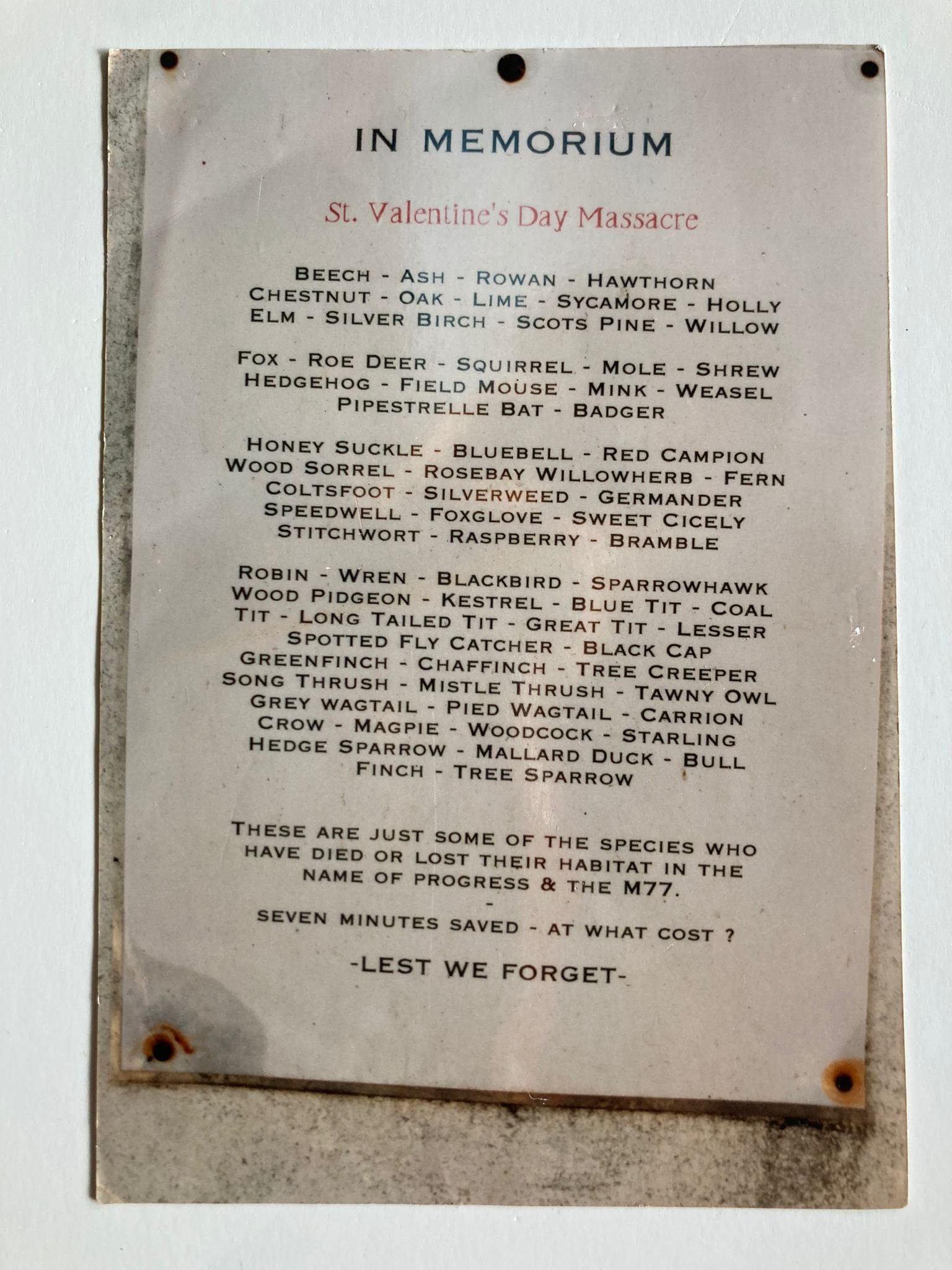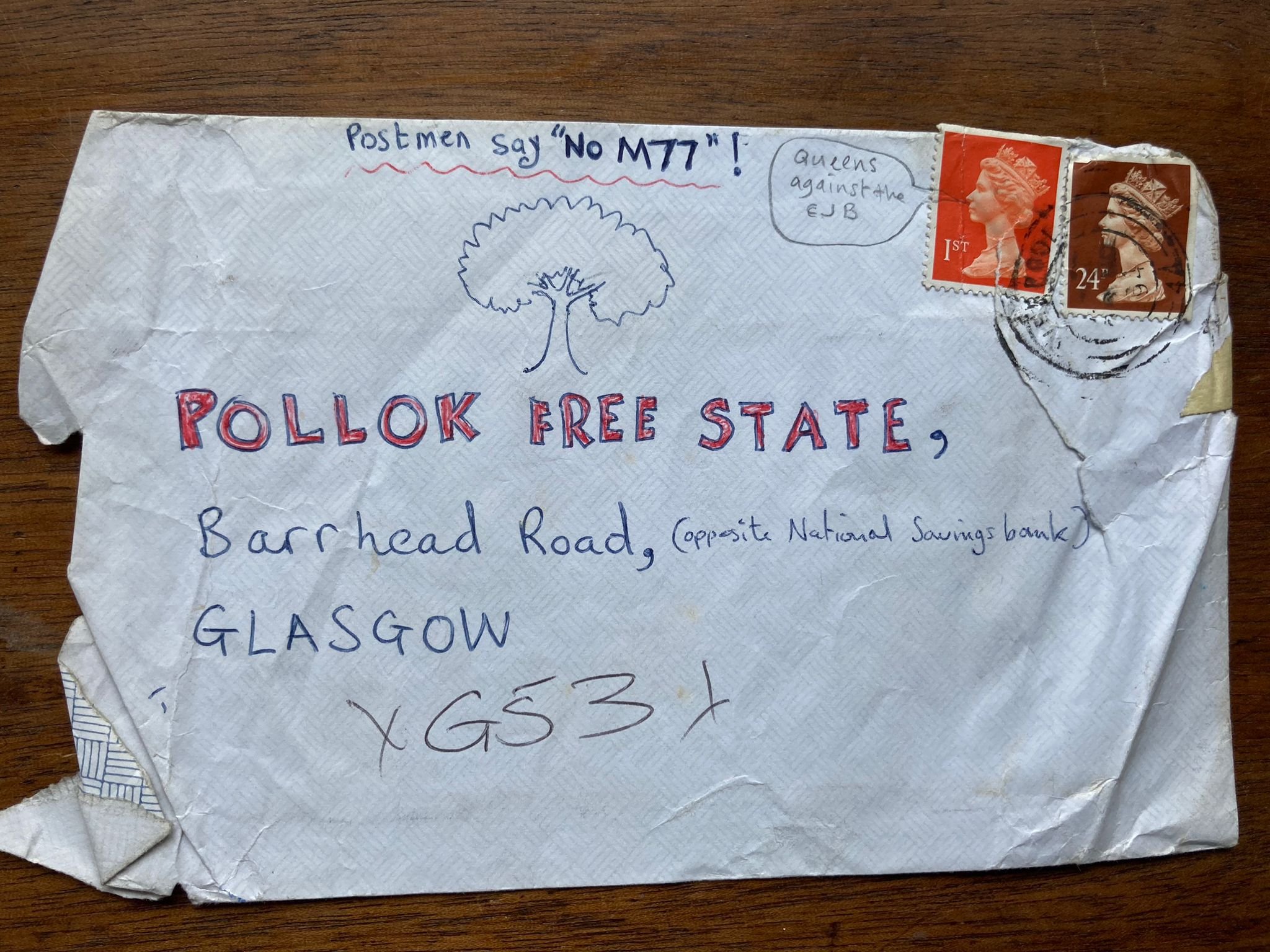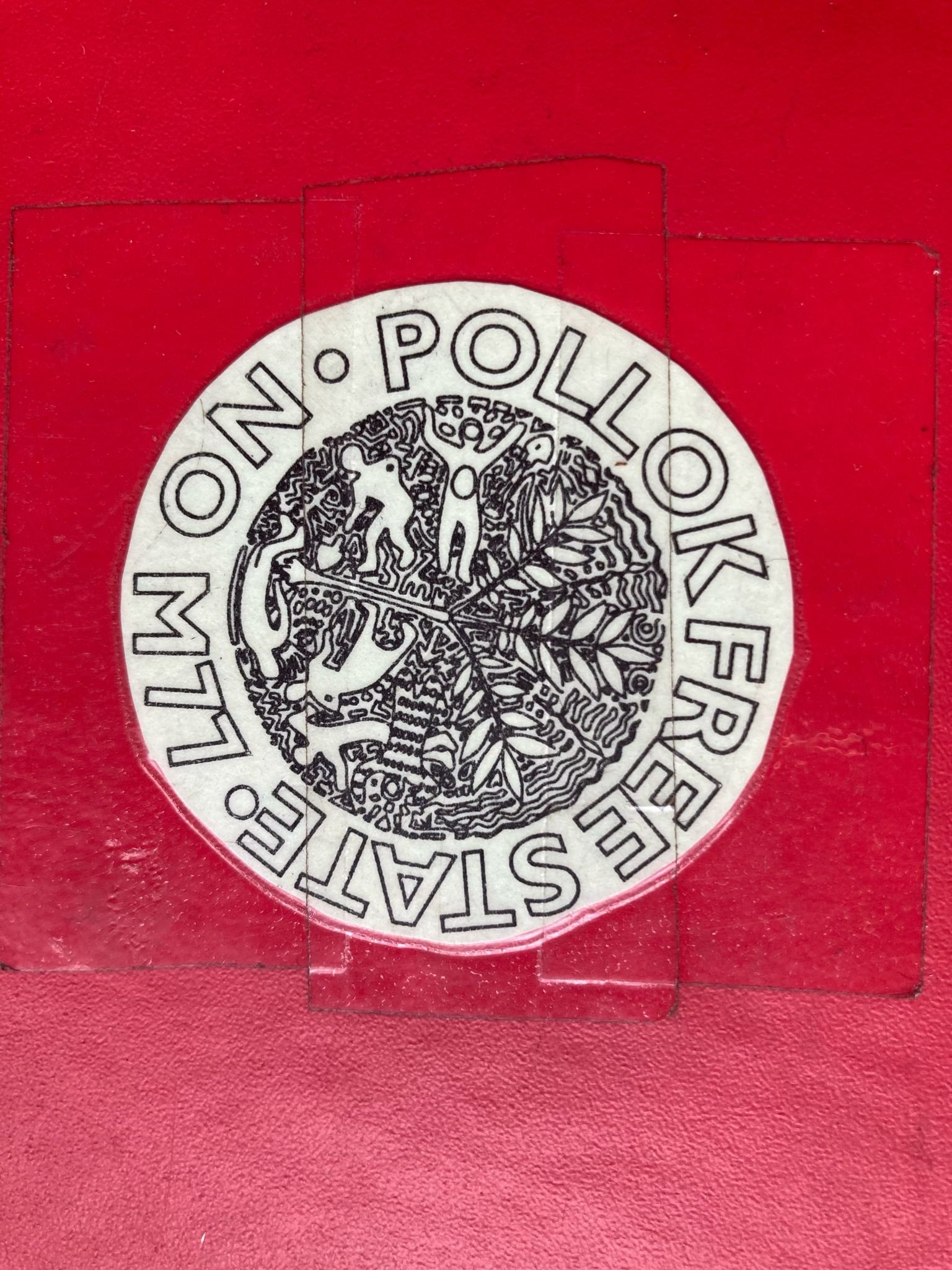The lasting legacy of the Pollok Free State
In this article, Katherine Mackinnon goes digging in the archive of the Pollok Free State protest movement, to tell the story of a legendary struggle against the expansion of the M77 through Pollok Park, via four of its objects.
By Katherine Mackinnon
A couple of miles from Govanhill, in a small room in the attic of a workshop in Ibrox, treasure sits among files of annual reports, rolls of flipchart paper and boxes of woodworking offcuts.
Here in the back office of Galgael, a wealth of photographs, newspaper clippings and letters tell stories of life in the canopy of a tree, communities on the march, international solidarity and police violence.
This is the archive of the Pollok Free State: a working-class led protest camp fighting against the expansion of the M77 through Pollok Park; an experiment in communal living; a radical reconnection with the land and its ancestral traditions; a state of mind.
The people of the Pollok Free State claimed and radically reimagined the threatened area of Pollok Park. Scavenged materials were cobbled together to create elaborate dwellings, and banners hung between the trees: NO M77 – RESPECT – We will fight them in the Beeches! – No Motorway in Pollok Estate OK!
It was a ramshackle and beautiful space, filled with large and detailed wood carvings of animals and Celtic knotwork alongside colourful flags and banners, all lit up by the sun through the green canopy of leaves overhead.
The photos show meetings round the campfire, songs, discussions with visitors, indigenous delegations. In a blurry series, ranks of hi-viz clad police officers stand massed and ready to dismantle the camp on a cold February morning.
The Pollok Free State as a physical space lasted for two years, from 1994 to 1996, but the echoes continue to be heard today. For many people it was their first experience of direct action, a gateway into political activism or the environmentalist movement. Friendships and relationships were forged which remain strong to this day. But while much was gained, much was also lost.
This memorial commemorates the loss of biodiversity at the site because of road building policy; not only that of Strathclyde Regional Council but of local authorities all across the country. The title commemorates the date police moved in to break up the camp, cutting down significant trees and attempting to disperse the inhabitants once and for all.
The M77 was ultimately built through Pollok Park and final stages of the motorway were completed in 1997. As the Free Staters warned, the motorway reduced local communities’ ability to access green space and resulted in a loss of habitat for wildlife, as well an increase in volume of traffic that rapidly choked the new motorway.
Many of the species listed on this memorial have seen huge drops in population since this poster was made, because of pollution, habitat destruction and climate change. The tiny corner of Barrhead Wood which housed the Pollok Free State was part of Scotland’s network of woodlands, which currently covers less than 20 percent of the country’s land mass. The European average is 43 percent.
The objects in the Pollok Free State archives show us the connections that were emerging between people in the camp and those who supported and encouraged them from afar.
Faded photo albums hold contact details for Hungarian and Czechoslovakian students, who were in Scotland to visit conservation projects and learn about transport policy. Some photos show grinning visitors from other environmental protest camps, another captures a bemused Mormon exchanging his religious text for a copy of The Pagan Sourcebook.
Letters like this one poured into the camp from across the UK and beyond, and were faithfully delivered. “Opposite NSB” refers to the huge and now-demolished National Savings Bank complex which once employed 6,000 workers on Barrhead Road. This envelope of solidarity sits in the PFS archive without a letter inside – maybe the sender was the postie themselves, or maybe they added their own messages to bits of incoming post.
Scotland is rich in histories of occupation, of people taking over contested spaces to prevent factory closures or the loss of community centres, swimming pools and green spaces. For many who experienced these occupations, the heady mix of freedom and responsibility remained with them long after the buildings were secured, or the parkland was lost. Thousands of trees have been planted, oaths sworn, other battles fought, all of which have roots in the short-lived but far-reaching experience of life in the Pollok Free State.
Galgael will be celebrating 30 years since the Pollok Free State’s Declaration of Independence from August with film screenings, exhibitions and other events.



